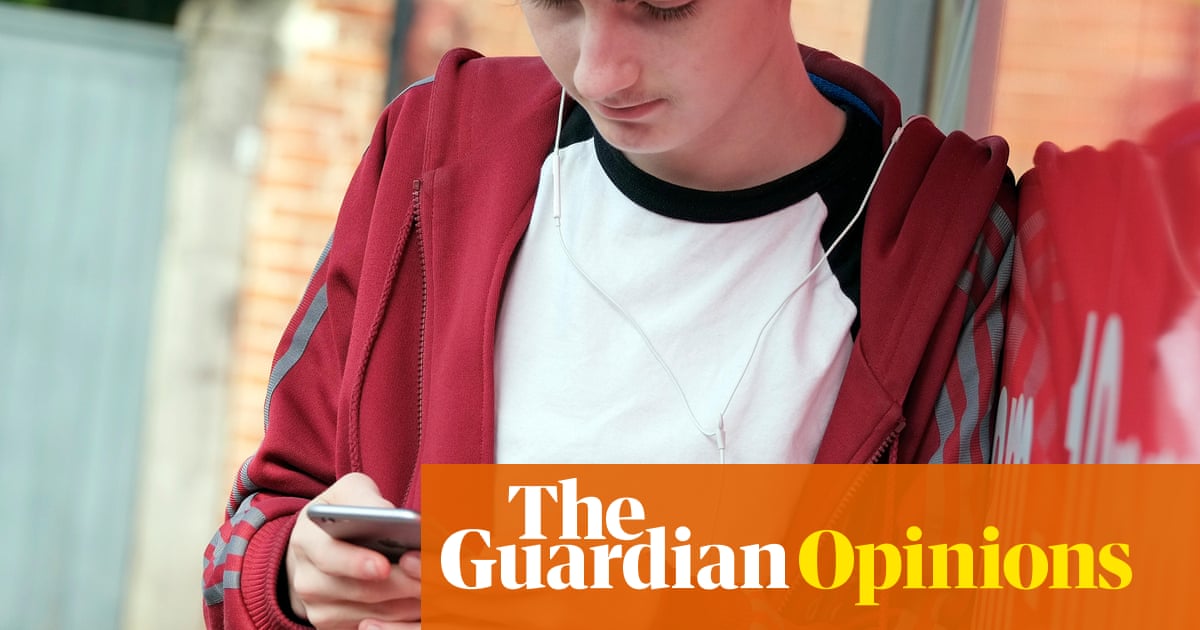If you were to watch Netflix’s Adolescence, or listen to Gareth Southgate’s recentRichard Dimbleby lecture, you could easily come away with a bleak picture of British masculinity – lost, insecure and at times toxic. Contemporary culture often portrays young boys as the victims of a new social order that gives them no blueprint for how to be a man in the 21st century. At worst, we see them as disciples of misogynists such as Andrew Tate, as perpetrators of violence, or as victims of divisive, rightwing ideologies.
It can seem as though young men are inevitably bound to be radicalised. More than half of gen-Z men in the US aged between 18 and 29voted for Donald Trump. As Southgate put it in his lecture, more of our sons than we could possibly realise are beholden to “callous toxic influencers”, including Tate.In recent research we commissioned at St Dunstan’s Education Group, the group of private schools that I lead, we found that nearly half (49%) of 18 to 25-year-old men felt there were very few strong male role models in society, while 17% of young men said that credible accusations of sexual assault wouldnotchange their perception of someone they considered a role model. More than half (59%) of young men felt that feminism had gone too far.
Although it’s clear that boys are failing to understand their place in the world and are misguidedlyblaming feminismand broader advances in women’s rights for their perceived irrelevance, this is far from inevitable. While our instinct might be to judge young men, we need to unpick the context in which they grow up. As the youngest generation of men retreat online, they have moved away from traditional concepts of what makes a person admirable. Real-life role models have been eclipsed by an unregulated online world that capitalises on teenage uncertainty and presents viewers with misrepresentations of sex, body image and success.
In my years as a teacher, I have seen how the curriculum can help to support people through these challenges. Carving out meaningful time to work with young people and have discussions about their identity, purpose and choices is invaluable. Unpicking the positive attributes of masculinity and feminist thinking helps students understand the complexity of these topics. At our school in south-east London, we introduced courses that examine identity and online spaces, pornography addiction, toxic representations of gender and online influencers. We felt it was important to create time for young people to sit together and talk through these issues.
Teaching these subjects requires sensitivity, careful consideration and meaningful time. Although relationships and sex education (RSE) is compulsory in all secondary schools, it is often shoehorned into odd corners of the curriculum and tutor time. This fragmented approach limits its impact, particularly when it is delivered by undertrained, non-specialist teachers. Despite the urgency of issues like consent, online safety and gender identity, time devoted to exploring these topics remains far too short. The PSHE Association (the national body for PSHE education) recommends at least one hour per week across all key stages, but this is rarely guaranteed and, in many state schools, PSHE receives far less attention than other subjects.
To address this, reform must extend beyond well-resourced independent schools. Over 90% of children in the UK are educated in the state sector, where schools face stricter timetable constraints and less curricular flexibility. A society-wide issue demands a society-wide solution, which should be led by the government and the Department for Education. National policy should establish clearer expectations, including protected curriculum time, dedicated teacher training and financial support. Only then can we ensure that every child, regardless of background, receives the education they need to navigate relationships, identity and the modern world with resilience and understanding.
Yet curriculum reform is only one part of the solution. As the father of two young children and as an educator, I was particularly reassured by other statistics from our research: for the majority (50%) of young men, their biggest role model is still their father, while a fifth (20%) chose a male teacher as the second most significant person in their life.It’s easy to despair at what the future may hold for the next generation, but there is something deeply reassuring that those closest to young people still have real influence on them and the power to provide an antidote to misogynistic influencers.
Putting down our phones, being present, playing with our children, going for walks, talking to them about choices and values, offering support when needed: all of this can be just as potent as any online narrative, if not more so. When young people turn to online spaces, what they’re looking for is guidance, and if we can offer that in an alternative, positive and reinforcing way we can begin to counteract the harmful language and stereotypes that flourish there.
As educators and as individuals, we have the ability to stand up to this challenge. We can reshape young people’s understanding of not just masculinity, but gender, relationships, sexuality and our values as a society. In my professional and personal life I have witnessed the value of speaking to young people in the language they recognise, even about topics they may find particularly difficult or confusing. The challenge is great, but together we have the tools to rise to it.
Nick Hewlett is chief executive of the St Dunstan’s Education Group, a network of private schools in south-east London
